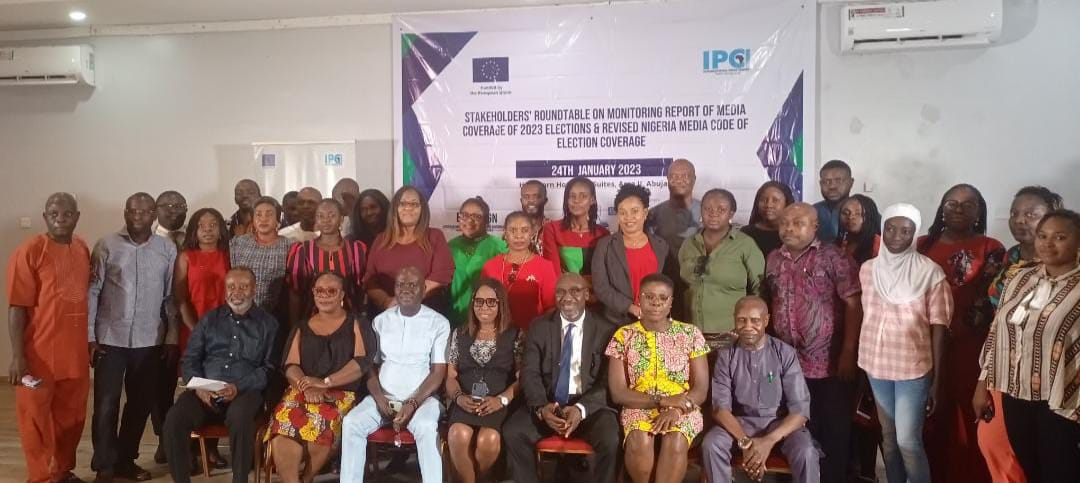Ahead of the February 25th general elections, the International Press Center (IPC), a media based human rights organization has stressed the need for the provision of protective wears such as bullet-resistant vest for journalists that would cover the exercise.
Its Executive Director Mr. Lanre Arogundade, made the call Tuesday in Abuja, during the Public Presentation/Stakeholders Roundtable on the Media Monitoring Report on Coverage of 2023 Electoral Process.
According to Arogundade, the call for protective wears became imperative as about 250 journalists who covered the 2019 general elections were molested and attacked during the course of discharging their lawful duties on election day.
He stressed the need for security agencies to guarantee the safety of Journalists during the forthcoming election, while lamenting that media professionals had become endangered species in the country.
He appealed to law enforcement agencies to ensure that what happened in 2019 in which accredited journalists were molested and harassed did not repeat itself in the forthcoming elections.
He also, charged Journalists working on election activities to demand protection in volatile areas from their principal or the security agencies as this is their right.
“Bullet proof, why not, especially for camera men. If the police can give us bullet proof once we are accredited, we will be happy about that. But beyond that what we are saying is that on election day, know that your own life matters.
“Journalists must be ethical, professional and another thing is for a conducive environment to be provided for us. And that’s why I talked about the need for political parties and government to come together and ensure that we are protected as safety matters,” he urged.
“Though, no journalist was killed on election day in 2019, 250 journalists were molested across the country including some of them who were accredited, particularly by overzealous law enforcement agencies.
“So we’re using this occasion to draw the attention of INEC, governments, security agencies and their own political parties to their own responsibilities if they want us to cover these elections effectively.
“As we move towards the 2023 general elections, we’re also going to be monitoring the situation of journalists and urge them to report any threats, or attack. If you are being asked to go and cover election in an area where there’s likely to be outbreak of violence, it is your right to ask for protection.”
Presenting the report, Prof. Abigail Ogwezzy-Ndisika of the Department of Mass Communication, University of Lagos, said media reporting of the 2023 electoral process between the period under coverage is commendable.
She, however, called for more reportage of the activities of vulnerable groups and other political parties, lamenting that inclusivity was poor in terms of sourcing of news as most media organizations’ analyses were practically on those who have always been reported.
“From the report, we found that we gave little voice to women, people with disabilities, youth and people in hard to reach areas. We should make our stories multimedia so we can speak to the non-literates people in the rural areas. So essentially we need to be deliberate about inclusivity in our reportage,” she said.

